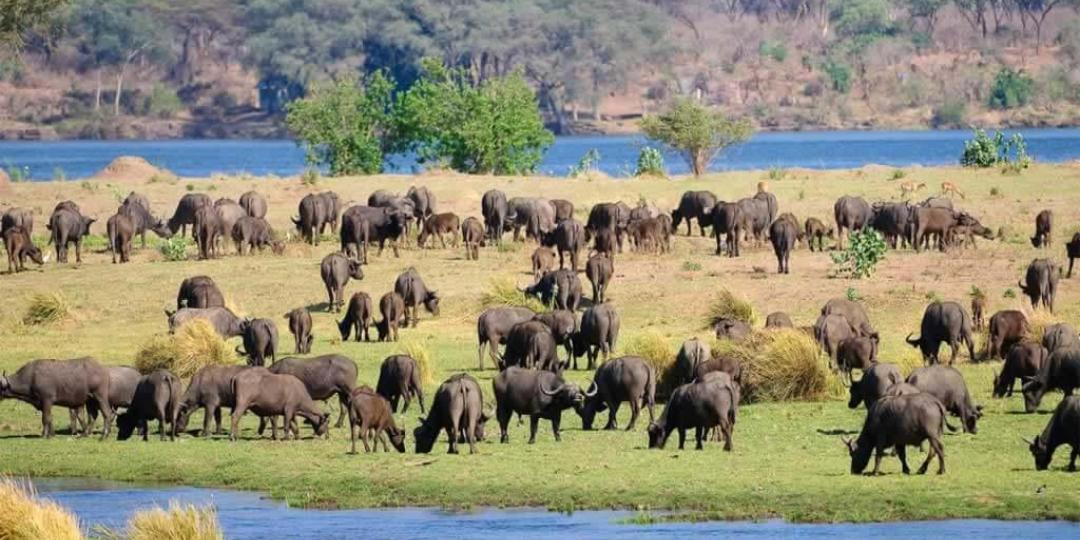Mana Pools National Park is often overshadowed by the mighty Victoria Falls. “It is a remarkable national park with rich and varied wildlife and safari activities. It truly is a value-for-money safari destination,” says Gemma Heyns, Public Relations Specialist at African Bush Camps.
The game reserve takes its name from the Shona word Mana, meaning 'Four' and refers to the four large watering holes or pools that are formed by the Zambezi River. The pools provide a backdrop to the reserve with the 2 500 sq km river banks and sandbanks being flanked by large lush forests of wild figs, baobabs and mahogany trees.
While 80% of the region remains inaccessible by road, a walking safari comes highly recommended. “The ability to walk in Mana Pools National Park is a major selling point for many tourists looking to come on safari. At African Bush Camps we focus on offering experiential safaris, says Heyns. “Our guides lead you on a journey, sharing their knowledge of the local flora and fauna. It is a truly magical experience.”
New to the area is Nyamatusi Mahogany Camp, which opened toward the end of April, making the area more accessible to families with children of all ages.
Large family groups have emerged as growing trends for travel in 2019, says Heyns. “Our guides have a reputation for catering for children of all ages and are talented in adapting to their needs and interests. Knowing that all their travel arrangements and needs are taken care of by an experienced safari company allows them to relax and enjoy their time in camp.”
Inland from the river, guests are discovering camps like Kanga Camp, which offer a substantially different experience to that of being on the river. “With the Kanga Pan being the only source of water within a 10km radius, dramatic conflicts have resulted as animals compete for water,” says Heyns.
“Changes in animal habits also prove exciting, with the ever-popular Boswell, the elephant bull who balances on his back legs to forage from the high branches. Younger elephants have started to learn from the master too!” adds Heyns.
The increased tourism presence has substantially helped to curb the threat of poaching in the area. “This is particularly appealing to the growing trend of conservation-focused tourists.”
This offers guests a new kind of wildlife experience for guests to enjoy. “Nature does work in cycles and where some wildlife are struggling, others are flourishing. We are here to facilitate and enable top experiential travel,” concludes Heyns.























